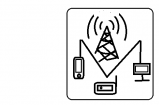Top 5 Ethical Hacking Tools that security engineers should Know #ethicalhacking #cybersecurity
Top 5 Ethical Hacking Tools that security engineers should Know about
Follow for more!
Ethical Hacking
——————————————————————————————————————————————————-
In an age dominated by technology, the importance of cybersecurity cannot be overstated. As organizations and individuals store sensitive information online, the risk of cyber threats continues to rise. This has given birth to the field of ethical hacking, where skilled professionals use their expertise to identify and fix security vulnerabilities before malicious hackers can exploit them. In this comprehensive guide, we will delve into the world of ethical hacking, exploring the tools, techniques, and steps to become a proficient ethical hacker.
I. Understanding Ethical Hacking
1.1 What is Ethical Hacking?
Ethical hacking, also known as penetration testing or white-hat hacking, involves authorized professionals attempting to breach computer systems, networks, or applications with the purpose of identifying vulnerabilities. Unlike malicious hackers, ethical hackers work within legal boundaries to strengthen the security of their target systems.
1.2 Importance of Ethical Hacking
The significance of ethical hacking lies in its proactive approach to cybersecurity. By simulating real-world cyber attacks, ethical hackers help organizations identify and address vulnerabilities before they can be exploited by malicious actors.
II. Ethical Hacking Tools
2.1 Nmap
Nmap, short for Network Mapper, is a powerful open-source tool used for network discovery and security auditing. Ethical hackers employ Nmap to scan networks, identify active hosts, and discover open ports.
2.2 Metasploit
Metasploit is a widely-used penetration testing framework that allows ethical hackers to automate the process of exploiting vulnerabilities. With its extensive database of exploits, Metasploit helps testers simulate various attack scenarios, providing a comprehensive view of a system’s security posture.
2.3 Wireshark
Wireshark is a packet analysis tool that enables ethical hackers to capture and analyze network traffic. By examining packets, hackers can identify potential security threats, such as suspicious connections or unauthorized access attempts.
2.4 Burp Suite
Burp Suite is an integrated platform for web application security testing. Ethical hackers use Burp Suite to identify vulnerabilities in web applications, including SQL injection, cross-site scripting (XSS), and other common security issues.
2.5 John the Ripper
Password security is a critical aspect of cybersecurity, and ethical hackers often use John the Ripper to test the strength of passwords through brute-force attacks and dictionary attacks. By uncovering weak passwords, ethical hackers can advise organizations on enhancing their authentication systems.
2.6 Aircrack-ng
Wireless networks pose unique security challenges, and Aircrack-ng is a tool specifically designed for testing the security of Wi-Fi networks. Ethical hackers use Aircrack-ng to assess the integrity of wireless encryption protocols and identify potential vulnerabilities in a network’s wireless infrastructure.
III. Techniques Used in Ethical Hacking
3.1 Reconnaissance
Reconnaissance, or information gathering, is the initial phase of ethical hacking. During this stage, hackers collect data about the target system, including IP addresses, domain names, and network infrastructure.
-Scanning
-Gaining Access
IV. How to Become an Ethical Hacker
While a formal education in computer science or information technology is beneficial, becoming an ethical hacker often requires additional specialized training. Many ethical hackers pursue certifications such as Certified Ethical Hacker (CEH), Offensive Security Certified Professional (OSCP), or Certified Information Systems Security Professional (CISSP) to validate their skills and knowledge.
Practical experience is paramount in ethical hacking. Aspiring ethical hackers should engage in hands-on activities, such as setting up a home lab, participating in Capture The Flag (CTF) competitions, or contributing to open-source security projects.
4.3 Specialized Training
Numerous training programs and online courses offer specialized instruction in ethical hacking. These courses cover a range of topics, from basic concepts to advanced penetration testing techniques. Platforms like Offensive Security’s TryHackMe and Hack The Box provide practical environments for individuals to hone their skills in a controlled setting.
——————————————————————————————————————————————————-
Hashtags:
#ethicalhacking #ethicalhacker #ethical #cybersecurity #cyber #cybersecurityawareness #security #securitybreach
Views : 565
cyber security




